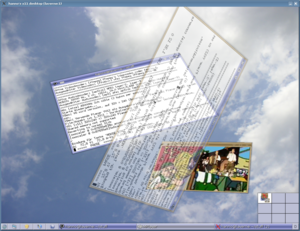Entries tagged as desktop
freesoftware 23c3 27c3 3d 3ddrucker adobe amusementpark asia ati backnang base64 bash beijing berlin beryl bios blob bonn bufferoverflow camera canon ccc cellular chdk chemnitz china chromium cinderella cinelerra clt code codecs compiz compizfusion composite compression console copyright creativecommons csrf css cve ddwrt debian developingworld digitalcamera disney disneyland driver dvd eltorito evince exe fake ffmpeg film firefox firmware france freeculture freewvs freiegesellschaft freifunk frequencies frequency froscon froscon2007 fsf fsfe gaia games gargoyle gentoo ghost gimp glibc gnome google googleearth graphics grub gsm hardware heartbleed homebrew ibm ico icons icoutils iso itu ixus jugendumweltbewegung jukss karlsruhe kde königswusterhausen kpdf laptop lenovo lessig license linux lpi lpic lspci lsusb lug memdisk messe microsoft mobilephones movie musik nancy nessus nouveau nvidia ökologie okular olpc openbsc openbts openexpo opengl opensourceexpo openssl openstreetmap openvas osmocombb pciids pdf phoronix php poppler presse privacy rapidprototyping rar realmedia realvideo redhat reprap retrogames reverseengineering rmll router rv30 rv40 s9y science sciencefiction script security serendipity sfd shellshock shijingshan siegburg simcity society softwarefreedomday sqlinjection stepmania sumatrapdf sunras syslinux talk theory thesource theunarchiver thinkpad travel trip2011 tuxmas unar usbids video videoediting vulnerability web wii wiibrew wiki windows windowsrefund wiretapping wos wos4 wrestool xorg xss freedesktop gtk kgtk qt standards usability akademy ct escapa esslingen javascript lemmings ludwigsburg 1und1 4k ac100 addresssanitizer aiglx android apache apt artikel asan assembler augsburg augsburgerallgemeine bahn c cacert cardreader ccwn clang come2linux core coredump cpu cpufreq crash cryptography darmstadt deb delilinux demoscene distribution dmidecode drm english entropia essen fedora fma86t frankreich gadgets gammu gatos gcc gnokii gnupg gpg gphoto gpn gpn5 grsecurity hacker harddisk hash hddtemp howto hp http inkscape installparty iptables kubuntu libressl lit07 lm_sensors luga lugbk macos mandriva md5 memorysafety memorystick metisse mobile motherboard mplayer mrmcd mrmcd101b multimedia network nokia notebook omnibook openbsd openpgp overheatd overheating packagemanagement passwörter pcmagazin pcmcia pgp programming proxy ptp r300 radeon randr12 ricoh rpm samsung schokokeks sd sdricohcs segfault server sha1 signatures smart smartbook smartmontools sncf squid ssl subnotebook support symlink t61 time tls toshiba tv tvout ubuntu unicode usb useafterfree utf-8 vc-1 vista vortrag waiblingen web20 webhosting webinale webroot websecurity webserver win32codecs wine wlan wmv x1carbon xgl zeitung browser clickjacking copycan datenschutz etymologie internet paniq presserat schäuble vorratsdatenspeicherung wga metacity
 Some days ago it was reported that Microsoft declared it considers
Some days ago it was reported that Microsoft declared it considers 